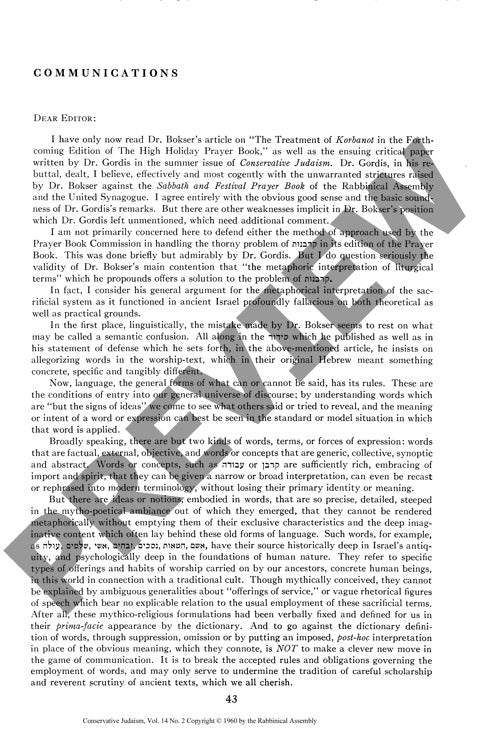Communications
Couldn't load pickup availability
This scholarly exchange examines competing approaches to interpreting sacrificial terminology (korbanot) in Jewish liturgical texts, particularly in Conservative prayer book editions. Burnstein critiques Dr. Bokser's metaphorical interpretation method, arguing that certain Hebrew sacrificial terms are too historically and linguistically specific to be rendered metaphorically without losing their essential meaning. Through semantic analysis, Burnstein distinguishes between broadly interpretable concepts like avodah and korban versus precise sacrificial terminology such as olah, shelamim, and zevachim, which he contends cannot be allegorized without violating accepted linguistic principles. He traces this interpretive approach to medieval Jewish philosophy from Philo to Maimonides, arguing that such metaphorical devices historically proved unsuccessful and contradictory. Instead, Burnstein advocates for the Prayer Book Commission's editorial approach of selective textual revision while preserving ancient symbolic content. In response, Bokser defends metaphorical interpretation by citing extensive precedents in Psalms, Talmudic literature, and lexicographical sources demonstrating that specific sacrificial terms have legitimately functioned metaphorically throughout Jewish tradition. This methodological debate reflects broader tensions within Conservative Judaism regarding liturgical authenticity, historical continuity, and contemporary relevance in prayer book revision.

More Information
-
Physical Description
-
Publication Information
Published 1960
ISBN
-
Publication Credits

